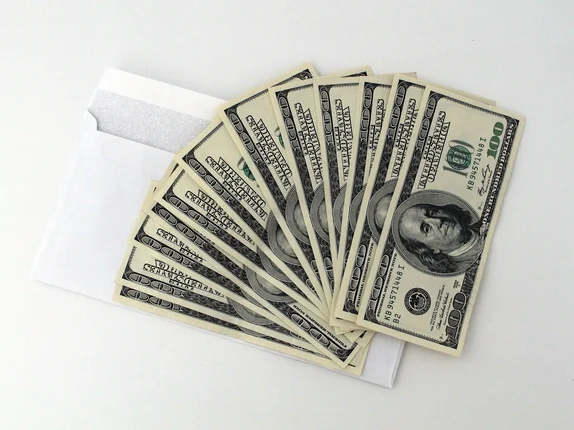We’ve all heard the adage before: “Money is power. And, although money is not the end result or ultimate outcome we want to achieve in life, the truth is…
Money impacts all of us and many of our daily decisions have an impact on our finances.
Ask yourself, if you have no money, how much power do you really have?
What if you have a little money?
What about a lot of money?
See, money allows us to take control of our futures, meet our needs and the needs of our families and communities.
It takes the power out of someone else’s hands and allows us to save, invest, plan for the future, break generational cycles of poverty and allow us to experience an unexplainable peace.
In other words, it puts us back in the driver seat of our financial destiny.
If that is not reason enough, let’s look at some startling statistics from Bankrate.
- More than 50% of adults could not pay for a large expense with money from their savings. An emergency fund is necessary to handle those everyday unforeseen things like, the breakdown of a car, a leaky roof, a busted hot water tank. Things that need immediate attention and money to resolve. We all have them but statistically, less than 50% of us are prepared to handle them when they come and that is a when…not an if, because they will come. If you are not amongst the individuals that are prepared to handle a large, unexpected expense, your new priority should be to save for an emergency fund of at least $1000.
- More than 2 out of 3 Americans are worried about having enough emergency savings to cover a month’s worth of living expenses. This emergency fund or “rainy-day savings” should at least have enough to live off of for 3 to 6 months. It can be tempting to tap into this money in your savings, which is why I recommend having it in an online bank and to not have a debit card or checks you can easily access for this account. That way you’ll be less likely to spend the money and actually be able to save it for when an emergency arises. As a pro-savers tip, try taking a portion of your paycheck every two weeks or monthly and automatically put it in a savings account. This is a long-term plan in case of a major tragedy like the loss of a job, sickness of yourself, a kid, a parent, or a spouse. This fund will allow you to meet your basic needs for some time until you’re able to recover.
How you handle your money and save – what we call “Financial literacy” transcends beyond your education status, your race, sexual orientation, gender, or any other divide you can think of. It impacts us ALL. You must have the desire, determination and commitment to seek out the knowledge and more importantly, be willing to make the necessary sacrifices to achieve your financial goals. If you don’t have a rainy-day fund, then now is the best time to start and take the necessary steps to put money into it on a regular basis.

